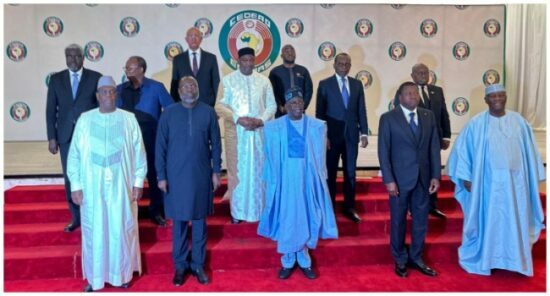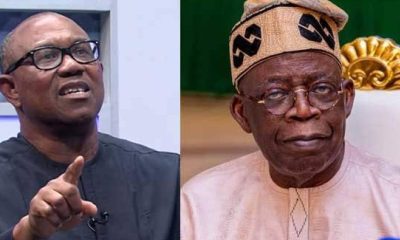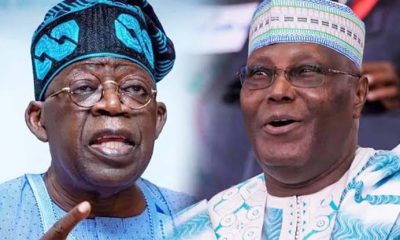
News
President Tinubu’s Tenure Ends As ECOWAS Chairman

ABUJA, (iexclusivenews) – As the 65th Ordinary Session of the Economic Community of West African States (ECOWAS) Authority of Heads of State and Government convenes at the Presidential Villa in Abuja, a significant chapter in West African politics draws to a close.
President Bola Tinubu of Nigeria, who has served as the chairman of this influential regional bloc since July 2023, prepares to hand over the reins of leadership.

Tinubu’s Ascension to ECOWAS Leadership
President Tinubu’s unanimous endorsement as ECOWAS chairman in July 2023 at the 63rd Ordinary Session in Bissau, Guinea-Bissau, marked the beginning of a tenure fraught with regional challenges.
His leadership coincided with a period of significant political turbulence in West Africa, testing the resilience of democratic institutions across the region.
Stance Against Military Coups:

One of the defining features of Tinubu’s chairmanship was his robust response to the wave of military coups that swept through several ECOWAS member states.
The Nigerian leader initially adopted a hard-line approach against unconstitutional changes of government in:
- Niger Republic
Burkina Faso
Mali
Guinea
This stance led to the imposition of severe sanctions on these nations, aimed at pressuring the military juntas to restore civilian rule.
READ MORE: Sahel States Break Away from ECOWAS and Form New Confederation
ECOWAS Orders Deployment of Standby Force to Restore Constitutional Order in Niger.
Shift Towards Diplomatic Solutions
As the situation evolved, ECOWAS, under Tinubu’s guidance, demonstrated flexibility by lifting sanctions and pivoting towards more diplomatic approaches.
This shift reflected a nuanced understanding of the complex socio-political dynamics at play in the affected countries.
The Senegalese Election Success Story:
A highlight of Tinubu’s tenure was his critical role in ensuring the success of the 2023 Senegalese election.
By facilitating dialogue between various stakeholders, he helped navigate potential political crises and reinforced the democratic process in Senegal.
Commitment to Democratic Principles
Throughout his chairmanship, President Tinubu consistently demonstrated a strong commitment to promoting and safeguarding democracy across the sub-region.
This unwavering stance helped maintain ECOWAS’s credibility as a guardian of constitutional governance in West Africa.
Challenges and Opportunities:
As President Tinubu prepares to pass the torch to his successor, the incoming ECOWAS chairman will inherit a region at a crossroads. The new leadership will need to:
- Continue efforts to restore democratic order in coup-affected nations
Strengthen regional economic integration
Address security challenges, particularly terrorism and transnational crime
Promote good governance and respect for human rights
Conclusion: A Legacy of Engagement and Adaptation
President Tinubu’s tenure as ECOWAS chairman, while brief, has been marked by significant challenges and important diplomatic achievements.
His leadership style, characterized by a mix of firmness and flexibility, has helped navigate the organization through a turbulent period in West African politics.
As ECOWAS prepares for this leadership transition, the lessons learned and relationships forged during Tinubu’s chairmanship will undoubtedly influence the future trajectory of regional cooperation and governance in West Africa.,




























